Dean's Speaker Series
Upcoming lectures
This is an annual event that takes place in late fall. Please check back for more details.
Past lectures

Dr. Brandeis Marshall, PhD, Founder and CEO of DataedX Group
"Let's Talk: Why AI Will Not Replace You"
AI-assisted tools, such as ChatGPT and Copilot, have shifted how academic institutions and their instructors operate. There’s a real fear of job replacement or needing significant AI upskilling/reskilling in order to maintain their livelihood. Instructors are also concerned with how to assess what the learner knows and can apply unassisted by technology. In this human-centered talk, Dr. Marshall will counter the argument about the most disruptive and transformative advancement in technology with a focus on what is UnAI-able—actions, tasks and skills that can’t be digitized or automated. She will outline the three categories of human-driven decision-making competencies that every sector and industry currently needs and will require for the foreseeable future. For those educators in the classroom, Dr. Marshall will share small, non-disruptive changes to integrate during lecture time and throughout a course that’ll help hold learners accountable. You will walk away better AI-informed on navigating your career and your classroom.
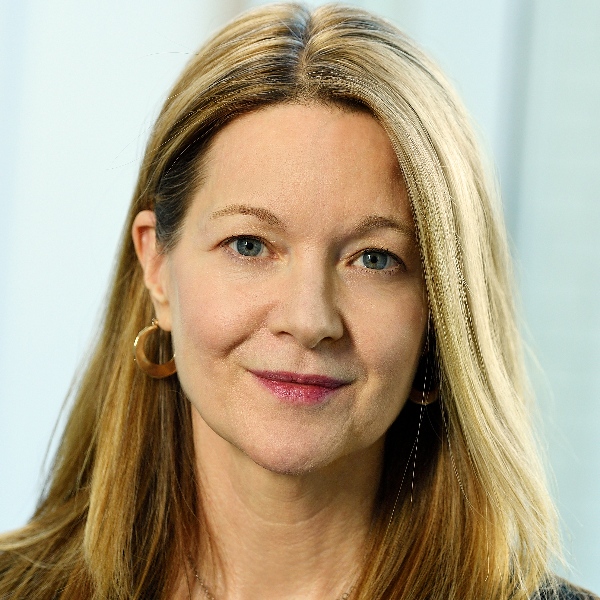
Christy Bethell, PhD, MPH, MBA
"Prioritizing Possibilities to Translate the Science of Healthy Development and Well-Being into Policy and Practice"
Dr. Bethell, PhD, MPH, MBA, is a national leader in the development of policy, practice and research applications of population health and systems performance measurement. Presenting on her project, We Are the Medicine, Dr. Bethell discusses her aim to strengthen and implement the science of healthy development into policy, practice, and culture so all children thrive. Advances in the sciences of human development create unprecedented opportunities to proactively advance child well-being. Breakthrough findings across disciplines point to a new science of thriving that illuminate often untapped capacities for the promotion of healthy development and healing despite adversity. Given high rates of adversity, healing is prevention.
This event was held hybrid on March 13, 2024.
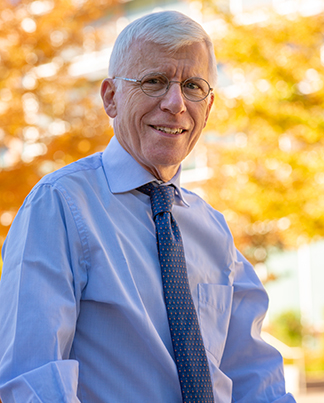
Jon Samet, MD, MPH
"Air Pollution, Climate Change and Health: How Science Does (Does Not) Drive Policy"
Dr. Samet, MD, MS, a pulmonary physician and epidemiologist, is the past dean of the Colorado School of Public Health. Air pollution was recognized as harming health centuries ago. By the mid-20th century, dramatic episodes of excess mortality at times of high air pollution, such as the London Fog of 1952, provided impetus for research and for evidence-based action. In the ensuing decades, the findings of epidemiological research have provided an evidence foundation for ever tighter controls in more developed countries, while air pollution inexorably worsened in some low- and middle-income countries. This presentation will address the nexus between science and policy for air pollution and health at the national and international levels. The overarching role of greenhouse gas pollution and climate change has brought new challenges, forcing a search for new solutions.
This event was held hybrid on January 18, 2024.
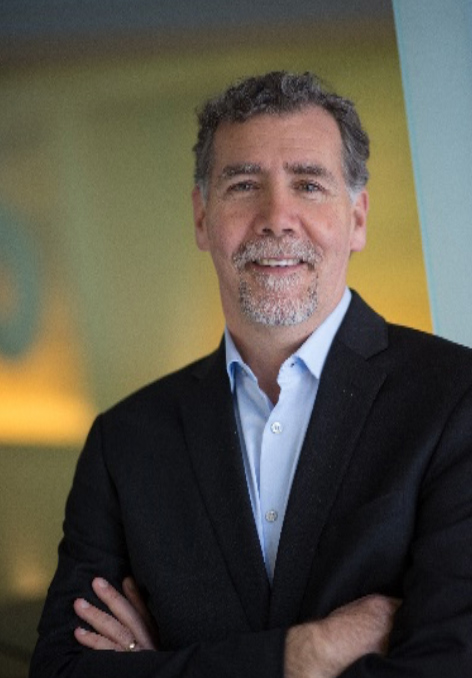
Chris Beyrer, MD, MPH
"Health and Humanitarian Consequences of Russia’s Invasion of Ukraine"
Dr. Beyrer is the inaugural Desmond M. Tutu Professor in Public Health and Human Rights at the Johns Hopkins Bloomberg School of Public Health. He is a professor of Epidemiology, International Health, Health Behavior and Society, Nursing and Medicine at Johns Hopkins. He serves as Director of the Johns Hopkins Training Program in HIV Epidemiology and Prevention Science and as Founding Director of the Center for Public Health and Human Rights. He is the Associate Director of the Johns Hopkins Center for AIDS Research (CFAR) and of the University’s Center for Global Health. Dr. Beyrer has spent much of his career focusing on the intersections of health and human rights. He was President of the International AIDS Society from 2014-16 and was elected to membership in the National Academy of Medicine in 2014. He currently serves as Senior Scientific Liaison to the COVID-19 Vaccine Prevention Network of the U.S. National Institutes of Health.
This event was held online on March 16, 2022. This event was co-sponsored by the CU Office of Student Affairs, CU Office of International Affairs, and CU School of Medicine Office of Diversity and Inclusion.
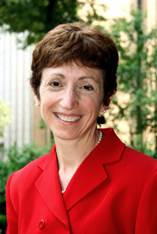
Roberta Ness, MD, MPH
"So You Think You Can Innovate?"
Roberta B. Ness, MD, MPH, retired Rockwell Professor of Public Health at the University of Texas, has been called one of America’s foremost experts in innovative thinking. She is author of four books: Innovation Generation, a systematic method about how to maximize your creativity; as well as Creativity in the Sciences, Genius Unmasked, and The Creativity Crisis, a workbook, storybook, and critical appraisal of institutional barriers to innovation.
Dr. Ness has given well over 100 talks and workshops on innovative thinking at America’s top universities, R&D intensive corporations, and science and technology professional societies including the National Academies, AAAS, AAP/ASCI, and in a dozen foreign countries. She offers a free on-line course: "Reimagining Innovation" which has been accessed by over 200,000 viewers; has given two TED talks; and was featured on the Bill Nye show, Star Talk Radio.
A recognized expert in medicine and public health, Dr. Ness is former dean of the University of Texas School of Public Health, one of the largest such schools in the nation.
This event was held online on April 21, 2021.

Patrick Remington, MD, MPH, FACPM
COVID-19: The Pandemic, Public Health & Politics
Dr. Remington is Professor Emeritus of Population Health Sciences and Director of the Preventive Medicine Residency Program at the School of Medicine and Public Health, University of Wisconsin-Madison. He was an epidemiologist at the CDC and the Wisconsin Division of Public Health for 15 years, prior to joining the UW as an Associate Professor in 1997. While at the UW he has served as Associate Director of the Carbone Cancer Center and was the founding director of the Population Health Institute and the MPH Program and the inaugural Associate Dean for Public Health. His research focuses on developing methods to measure the health of communities and communicate this information to the public and policymakers. He is the founder of the RWJ-funded “County Health Rankings” that ranks the health of the counties in the U.S. and examines strategies to improve population health. Dr. Remington earned a BS degree in molecular biology and an MD from UW; and completed an Internal Medicine Internship at the Virginia Mason in Seattle; the Epidemic Intelligence Service and Preventive Medicine Residency at the CDC; and an MPH degree from the University of Minnesota. He has authored or co-authored over 300 publications and teaches courses on public health to undergraduate, medical, and public health students.
This event was held online on March 17, 2021.
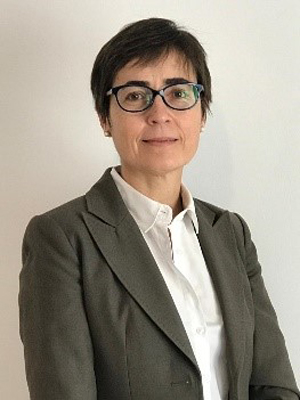
Maria Segui-Gomez, MD, MPH, MSc, ScD
Revising Our Strategies in Road Safety: Looking Forward to the Second Decade of Action
Dr. Segui-Gomez is a graduate from both the University of the Barcelona School of Medicine and the Harvard University School of Public Health. Since 1993, her work has evolved around securing longer and healthier lives through the eradication of
injuries, most notably those following traffic crashes. Her positions have included: Deputy Director of the Harvard Injury Control Center (Harvard University School of Public Health); core faculty of the Injury Control and Research Center (Johns Hopkins
Bloomberg School of Public Health); tenured faculty, founder, and director of the European Center for Injury Prevention (University of Navarra); General Director for Public Health, Drug Dependencies and Consumer Affairs (Regional Government of Castilla-La
Mancha); and General Director for Traffic (Spain). Her research interests have evolved around injury information systems, development of injury outcomes measures, and effectiveness and economic evaluation of motor vehicle-related injuries. Dr. Segui-Gomez
is the recipient of several international awards, including the International Distinguished Career and Excellence APHA award, the Fellowship and Mirkin AAAM awards, and the Beltil Aldman Award from IRCOBI.
This event was held online on
December 16, 2020.

Cheryl Anderson, MS, PhD, MPH
Racism is a Public Health Crisis: Opportunities and Challenges for Schools of Public Health
Cheryl Anderson, MS, PhD, MPH serves as Director of the UC San Diego Center of Excellence in Health Promotion and Equity, with a joint appointment in the Department of Medicine Division of Nephrology and Hypertension. Dr. Anderson received her doctoral degree from the University of Washington, and her Master of Public Health degree from the University of North Carolina at Chapel Hill. Dr. Anderson’s research is focused on nutrition and chronic disease prevention with a goal of equitably improving human health; including development of nutrition policy strategies for prevention of cardiovascular disease, chronic kidney disease, and diet-related cancers; and promotion of health behavior and elimination of health disparities by personal and environmental factors. Dr. Anderson has served on the Pan American Health Organization’s Technical Advisory Group on Cardiovascular Disease Prevention through Dietary Salt Reduction, the National Academy of Medicine’s Food and Nutrition Board, and the 2015 US Dietary Guidelines Advisory Committee. She is the Chair of the American Heart Association (AHA) Council of Epidemiology and Prevention and immediate past Chair of the AHA nutrition committee. She currently serves on the editorial board of Circulation. Dr. Anderson was elected to the U.S. National Academy of Medicine in 2016.
This event was held online on December 2, 2020.
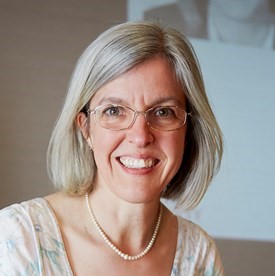
Christl Donnelly, CBE, FRS, FMedSci
Real-time Analysis of COVID-19: Epidemiology, Statistics and Modeling in Action
Christl Donnelly, CBE, FRS, FMedSci is Deputy Head of Department for the Department of Statistics at University of Oxford and Deputy Director of the WHO Collaborating Centre for Infectious Disease Modelling at Imperial College London School of Public Health. For the past 25 years, she has worked on the statistical epidemiology of infectious diseases, with a focus on real-time epidemic analysis to improve situational awareness and inform response. Christl has been involved in many intensive efforts to understand and control infectious disease threats, including those relating to BSE/vCJD, FMD, SARS, pandemic H1N1 influenza, MERS, Ebola (in West Africa and DRC), Zika and now COVID-19. Through the MRC Centre for Global Infectious Disease Analysis and the WHO Collaborating Centre for Infectious Disease Modelling, she has collaborated with colleagues in WHO, government departments and Public Health England on a variety of public and animal health threats. She is a Fellow of the Royal Society and of the Academy of Medical Sciences, and is also a Commander of the Order of the British Empire.
This event was held online on November 18, 2020.
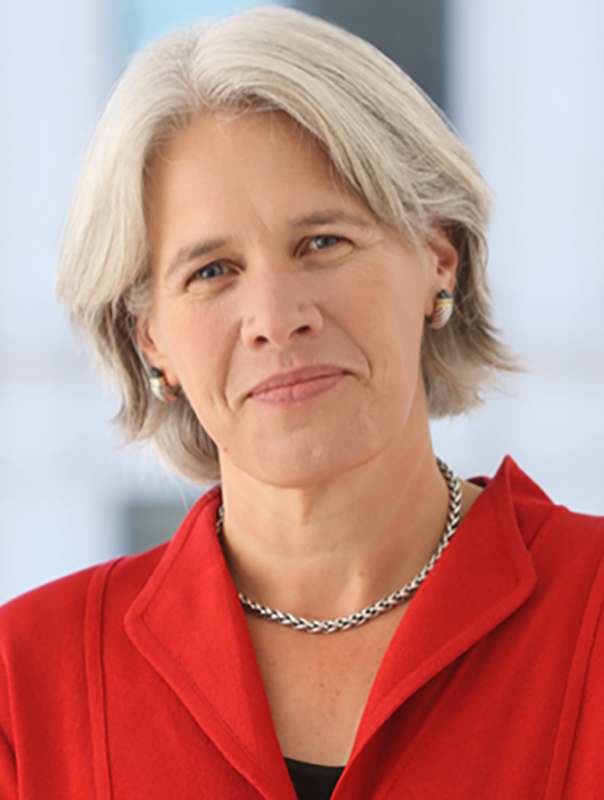
Shelley Hearne, DrPH
Policy as the Prescription for Catalyzing Change in Denver and Beyond: Academics as Health Advocates
Dr. Shelley Hearne has spent more than three decades as a change-maker bent on
boosting the health, safety, and sustainability of our planet and the people on it. She works with foundations, policymakers, and the private and non-profit sectors to tackle some of the thorniest health and environmental issues of the day: from finding
solutions in urban health policy to reducing exposure to toxic chemicals in our everyday lives. Dr. Hearne serves as the principal investigator for CityHealth and as a senior advisor to the Big
Cities Health Coalition which is a forum for the leaders of the nation's largest metropolitan health departments. She is also the executive director of the Forsythia Foundation and incoming director of the Center for Public Health Advocacy at the Johns
Hopkins Bloomberg School of Public Health.
This event was held at CU Anschutz on February 25, 2020. Dr. Hearne also spoke at CU Denver on Feb. 24.
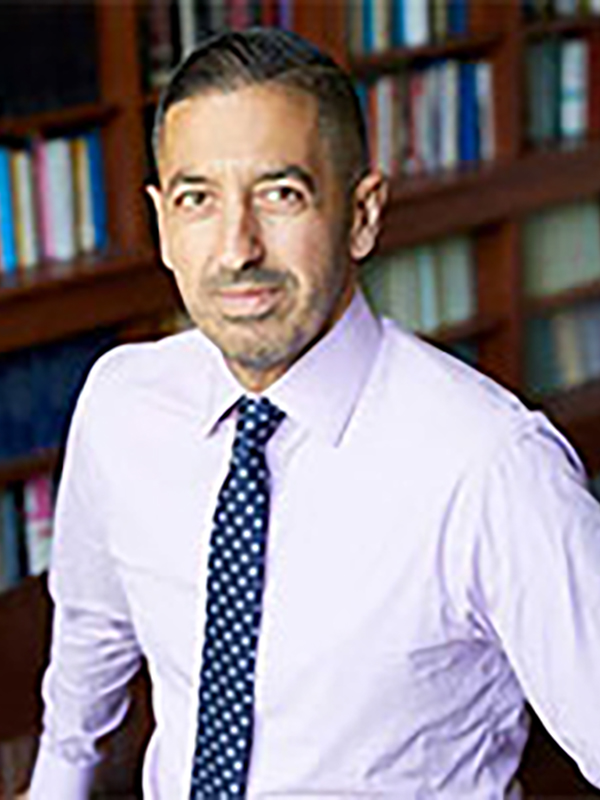
Sandro Galea, MD, MPH, DrPH
Guns, Opioids and Obesity: A Population Health Science Lens on Three Contemporary Epidemics
Dr. Sandro Galea is the Dean and Robert A. Knox Professor of the Boston University School of Public Health. Dr. Galea's presentation focused on how population health principles can inform our understanding of three epidemics of our time and to better understand how we might mitigate the consequences of current syndemics. This event was part of the Department of Family Medicine's Levitt Distinguished Speaker Seriesand was presented with support from the Colorado School of Public Health.This event was held at CU Anschutz on Jan. 22, 2020.
Watch Sandro Galea's presentation >
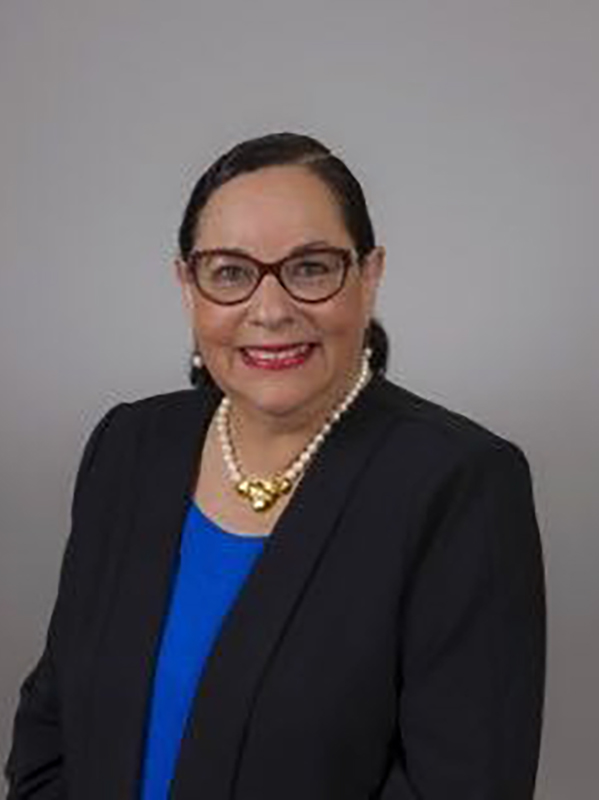
Lourdes Baezconde-Garbanati, PhD
Addressing Tobacco Disparities Among Hispanic/Latinos and Other Populations Through Research and Policy
This lecture was held at CU Anschutz on December 3, 2019.
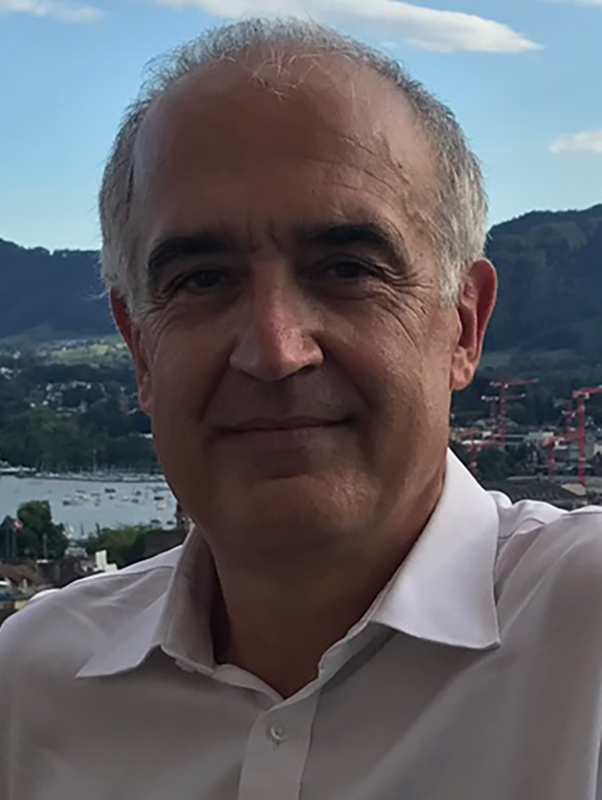
Javier Nieto, MD, MPH, MHS, PhD
The Epidemiology of Sleep Health
This lecture was held at CU Anschutz on December 3, 2018.
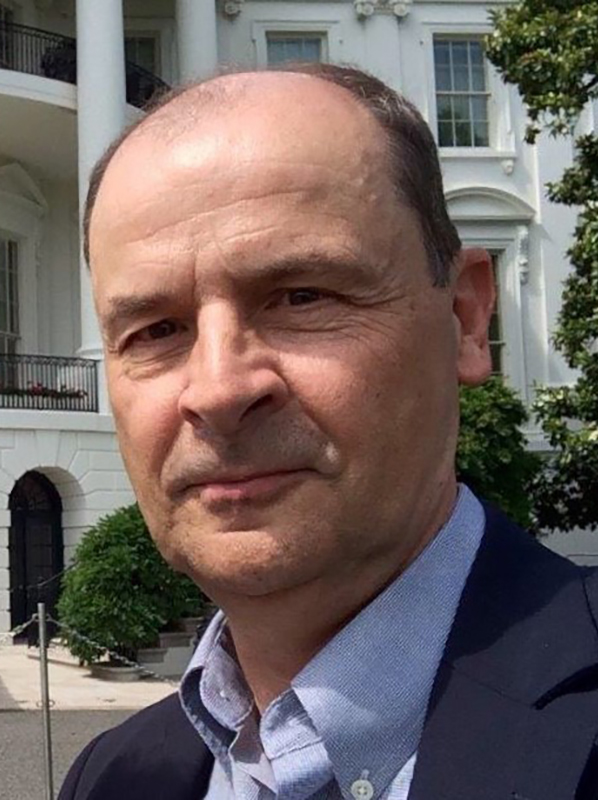
Thomas A. Burke, PhD, MPH
From Fracking to Flint: Reflections on Science from the Front Lines of the EPA
This lecture was held at CU Anschutz on October 1 and at CSU on October 2, 2018.
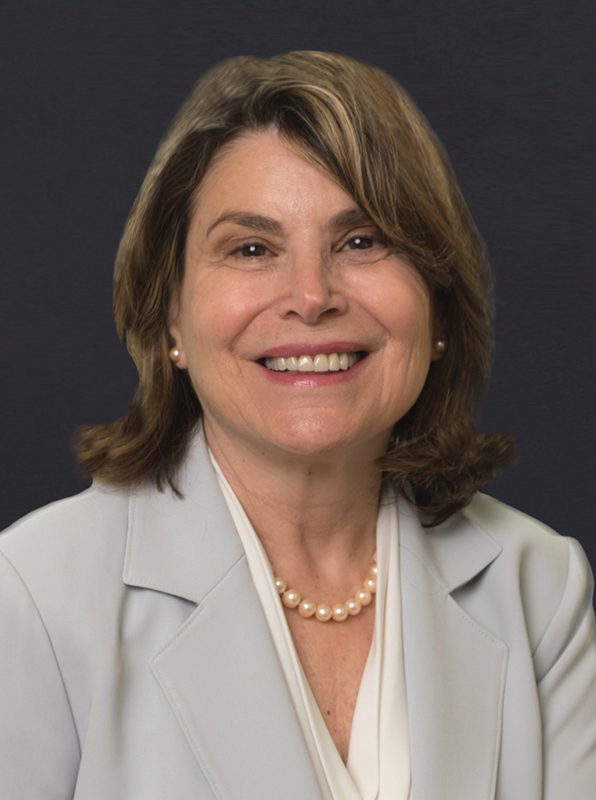
Robyn R. M. Gershon, DrPH, MHS
Emergency Medicine Metrics: How Do We Know When We Are Prepared?
This event was held at CU Anschutz on May 4, 2018.
David Vlahov, PhD, RN, FAAN
Urban As a Determinant of Health
Lecture: "Urban as a Determinant of Health" was held at CU Anschutz on May 3, 2018.Panel discussion: "Lessons from HIV Prevention for the Overdose Epidemic" was held at the CU Denver Business School on May 4, 2018.


